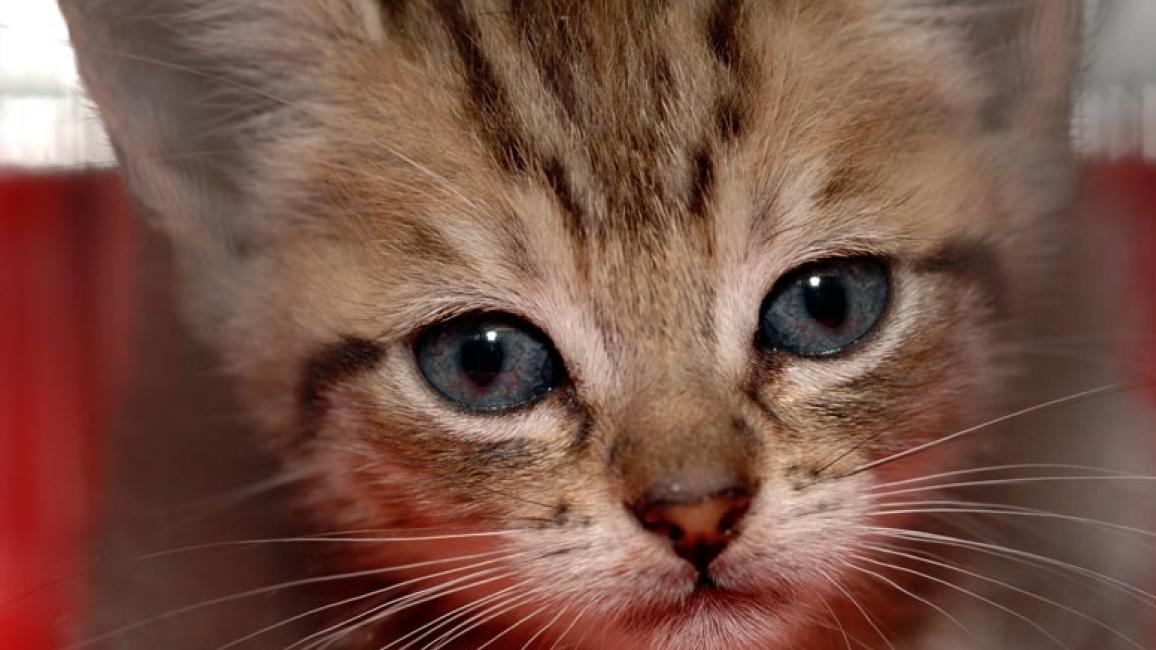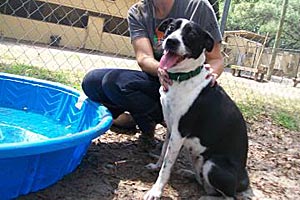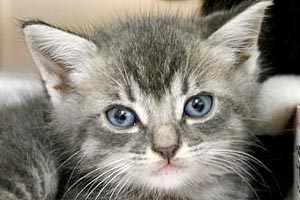No-kill Jacksonville, Florida

 A heavy-hearted gentleman went to Jacksonville Animal Care and Protective Services (ACPS), a shelter serving the busy Florida city. With his two large, mixed-breed dogs in tow, he was there to relinquish them. After a series of unfortunate circumstances, which included both he and his wife losing their jobs, he felt there were no alternatives.
A heavy-hearted gentleman went to Jacksonville Animal Care and Protective Services (ACPS), a shelter serving the busy Florida city. With his two large, mixed-breed dogs in tow, he was there to relinquish them. After a series of unfortunate circumstances, which included both he and his wife losing their jobs, he felt there were no alternatives.
After living in his car with the dogs because he didn’t want to lose his family members, he got a new job, but it was bittersweet. He would not be able to keep the dogs in the car any longer.
Best Friends' support of Jacksonville's no-kill goal
But luck was on his side. Best Friends supports Jacksonville’s no-kill efforts in a myriad of ways, and one of them by funding a counselor position at First Coast No More Homeless Pets (FCNMHP) that is stationed at the intake desk at ACPS.
Fortunately, the counselor knew that another local no-kill partner, Jacksonville Humane Society (JHS) had the Pet Safety Network program in place for exactly these types of situations and was able to arrange a no-fee boarding stint for the dogs until the man could secure pet-friendly housing. It’s this type of creativity and teamwork that is paving the way for the most lifesaving results Jacksonville has ever experienced. For the first in history, the city has a save rate of 90 percent (the percentage of animals entering a shelter that are not killed), meaning they’ve reached no-kill status.
Three crucial no-kill aspects
“Cooperation, resources and a dedication to achieving the goal have been crucial to creating these results,” says Rick DuCharme, founder and CEO of FCNMHP. “Without the level of collaboration we practice here in Jacksonville, it would take at least another eight years to reach this type of success.”
Denise Deisler, executive director at JHS, also believes that collaboration and out-of-the-box thinking are imperative to the results. Deisler says: “Sincere commitment by the three organizations at every level to adapt, change and evolve as needed to accomplish our no-kill goals has proven to be effective.”
Saving dogs and cats in shelters
 With the rallying cry of “save them all,” Best Friends is committed to ending the killing of dogs and cats in the country’s shelter system. Best Friends as an organization views Jacksonville as a leader in the no-kill movement and provides support in pivotal areas: pet retention, kittens and helping with community (a.k.a. feral) cats.
With the rallying cry of “save them all,” Best Friends is committed to ending the killing of dogs and cats in the country’s shelter system. Best Friends as an organization views Jacksonville as a leader in the no-kill movement and provides support in pivotal areas: pet retention, kittens and helping with community (a.k.a. feral) cats.
To help kittens and community cats, Best Friends helps fund the Jacksonville Humane Society Kitten Nursery, as well as a designated cat trapper. The kitten nursery helps keep nursing kittens healthy with round-the-clock care. The cat trapper is important to the area’s trap/neuter/return effort and works closely with FCNMHP’s community outreach employee. The two staffers go door to door in their targeted zip code, assisting with all kinds of pet related issues, as well as helping ensure that as many cats as possible are spayed and neutered. “This extensive outreach is ensuring the long-term sustainability of our no-kill efforts,” says Rick.
The Best Friends-funded shelter diversion specialist who counseled the man and helped him keep his dogs is also an important part of the winning no-kill lineup. “This program has been successful in diverting hundreds of pets who would have ended up in the shelter,” says Rick.
The success in Jacksonville, achieved through Best Friends’ collaboration with local groups, is proof that together, we really can Save Them All.
Get involved to save shelter animals
Find out more Best Friends local programs.
Photos by Dianne Wiles and courtesy of the Jacksonville Humane Society